Premature call-ups creating generation gap for England
Greg Johnson on why call-ups for Ross Barkley and Raheem Sterling shouldn't be cause for English celebration...
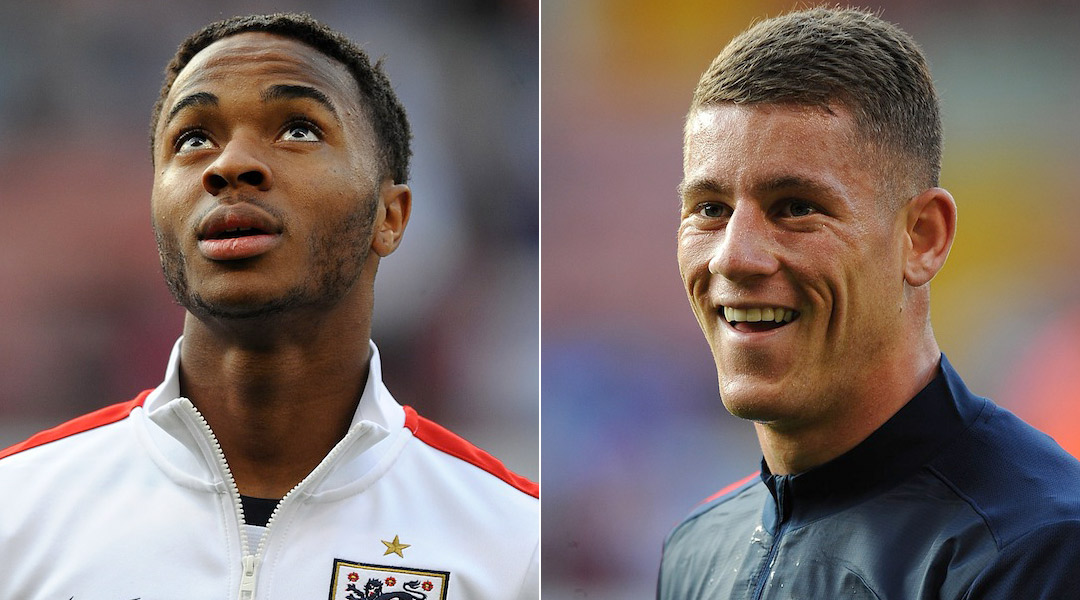
The premature call-ups of Raheem Sterling and Ross Barkley should be a cause for concern rather than celebration for England fans.
Aged just 18 and 19 respectively, their surprise inclusion in Roy Hodgson’s squad for the World Cup qualifiers against Moldova and Ukraine casts doubt over the purpose of the country’s under-21 and youth setups.
There are always risks and rewards in calling up youngsters, which go far beyond the development of the individuals themselves. International call-ups were once the preserve of a nation’s very best players; a reward for their form, longevity and quality.
Offering opportunities to promising talent doesn’t necessarily negate this function, but the circumstances of these latest call-ups fits an awkwardly familiar pattern. It’ll take more than the opening of St George’s Park and the hiring of Gareth Southgate to prove that England won’t misuse talent to cover up the mistakes of the past once again.
Get FourFourTwo Newsletter
The best features, fun and footballing quizzes, straight to your inbox every week.
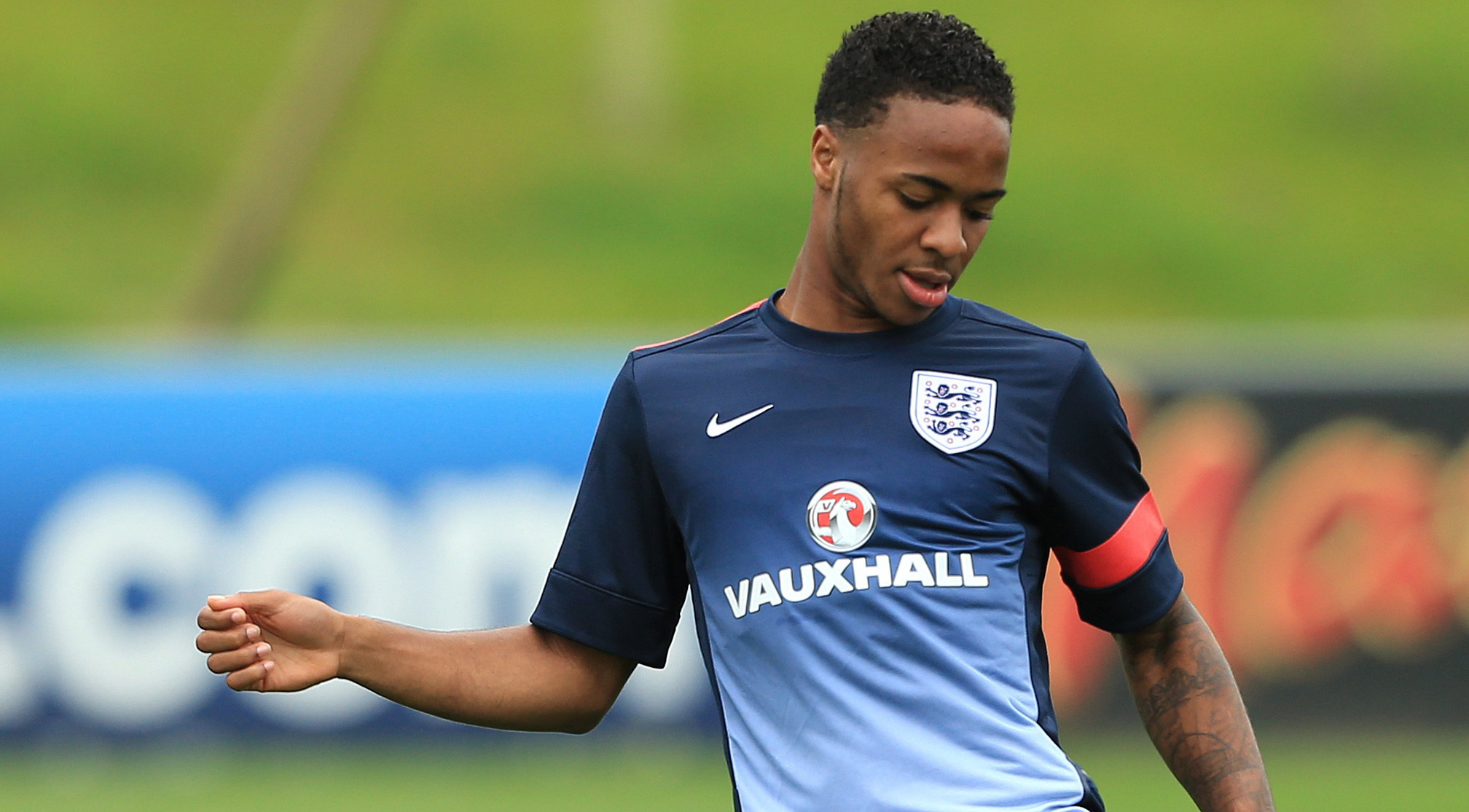
Spain and Germany offer playing time to promising prospects, but these appearances usually follow a series of well-defined and structured stages of development. Their ideas are also usually well integrated with the approaches taken by the clubs of their domestic leagues.
By comparison, how England manage the progress between age groups has long felt haphazard and improvised, while the FA’s relationship with Premier League clubs is fractious. Greg Dyke’s calls for unity are welcome but it’s hard not to judge such pronouncements as another false dawn. Cooperation needs to come from both sides.
Responsibility may well inspire young footballers, but in order to properly develop they also need to be able to make mistakes and learn their craft without undue pressure. The spotlight of England’s senior side, where any error can define a career young or old, is hardly the ideal place to serve an apprenticeship. Learning your trade petrified of doing wrong will encourage skittishness, rather than composure and creativity.
Equally, for the national team to progress in the future, bonds need to be formed early in order to foster the kind of long-standing, mutual understanding that has enabled the likes of Xavi, Andres Iniesta and Xabi Alonso to conquer the international scene.
By contrast, England’s approach results in players being snatched from the youth ranks to plug gaps in the senior side, with seemingly little thought to the disruption caused below. Promoting technically skilled youngsters to the England team because previous regimes failed to adequately mould the talent of the past is akin to patching a severed limb with a sticking plaster.
Supporters of the national team may complain that young English players aren’t given a chance at club level – of the players who appeared on the opening day only 34.1% were English, while only three U21 players featured – but with competition only intensifying domestically, experience and exposure needs to be better provided by the English youth system, especially now their new centre of excellence has been opened.
Players are snatched from the youth ranks to plug gaps in the senior side with little thought to the disruption caused below
As two of Gareth Southgate’s best players are shorn from his control in Sterling and Barkley, it’s unclear whether the under-21s are supposed to be an England B team reserve of fresh-faced back-ups, a true development squad of young prospects or a white elephant nobody is quite sure what to do with.
Confusion reigns, and although the old cliché of ‘if you’re good enough, you’re old enough’ will always hold true for those ready to play at a young age, when it comes to English football the mantra often feels closer to, ‘if you’re showing promise, you’ll be the second coming by supper’.
Impatience lingers at the heart of England’s attitude, and Barkley in particular looks at risk of being harmed by the burden of hype and expectation. A fearless teenager gifted with good technique and an imposing, mature physique, the Everton youngster is the embodiment of England’s twin ideals: the boy wonder and last action hero.
Having boosted his stock with a spectacular goal against Norwich and then showing due diligence in a well-rounded display in Everton’s draw with West Brom, Barkley appears to be well on his way to becoming one of the nation’s next great hopes.
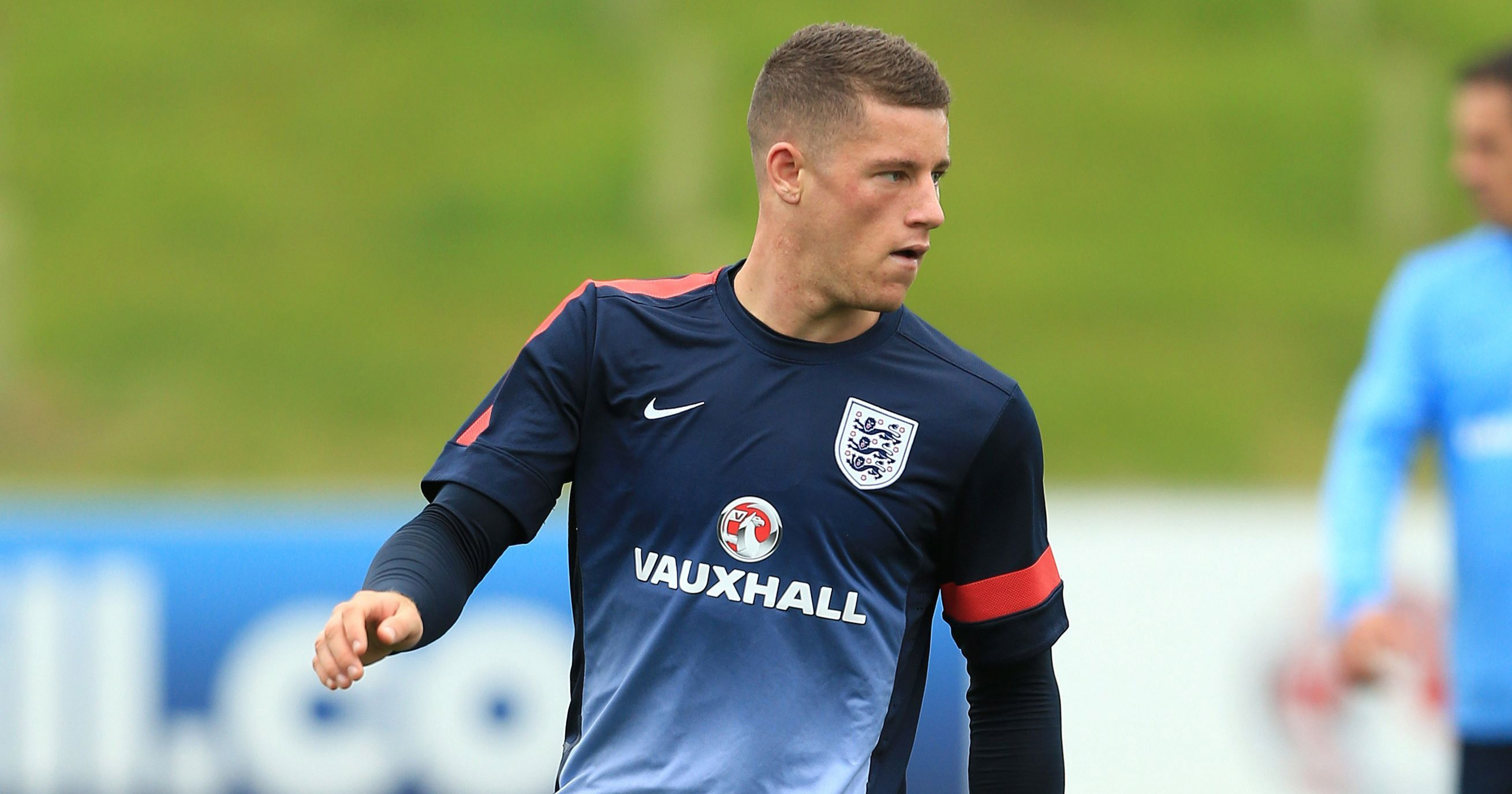
It’s perhaps wise to consider the special affection reserved for players in an all-action, last-ditch Roy Race mould. Frank Lampard, Steven Gerrard and Wayne Rooney, with their endless running, determination and easily recognisable contributions in both boxes, are the English ideal.
These heroic idols are lifted above the petty concerns of tactics, positional discipline or any of the other swottish sophistications of the modern game. In this land of Redknappisms, labels like “world class” lose all meaning. Team building is focused towards naming the 11 players best equipped to wear their hearts on their sleeves.
There is an element here too of distrust in technique and practise versus the presence of power and “spirit”. For more than 100 years the national team’s failures have been blamed on the apparent poor technical quality of English players, as if these abilities were of nature rather than nurture.
It’s the product of an inferiority complex that appears to believe the likes of Brazil, Germany and Italy benefit from some sort of born-ready, genetic advantage when it comes to playing football. With this mindset the national team can only ever hope to prevail through blood, sweat and tears in the face of good organisation and well-practiced first touches.
Meanwhile the likes of Sterling, along with other flair players before him; the likes of Chris Waddle, Paul Scholes and Joe Cole, are treated like flawed and risky luxuries gifted with the curse of ability.
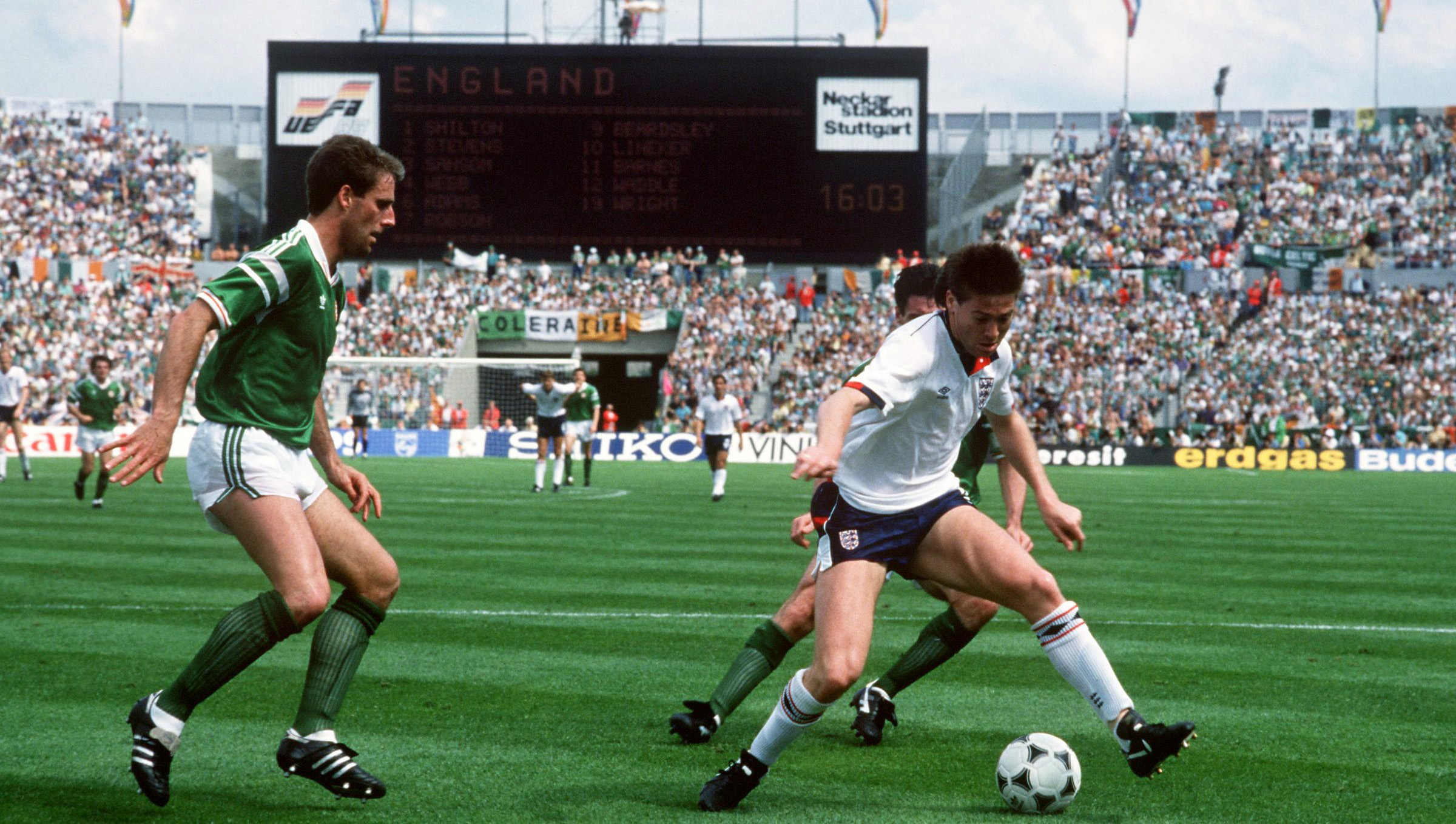
Differences are mistaken for a lack of bottle; their touch of flair being a random element of chance that can never truly be relied upon. As a result these players are exiled to the wing, away from the blood and thunder that’s sure to be required in the battle for the midfield, or the aerial duels up front.
To be great and English is to go beyond tactics, technique and positions. Forget that in 1966, Alf Ramsey’s cunning, wingless game plan was as vital to winning the World Cup as the quality of his team.
The problem lies in the apparent difficulty appreciating the more mundane, tidy and disciplined roles played by the likes of Gareth Barry, Michael Carrick and (if you’re Rafa Benitez) Alonso, to allow these flights of fancy to function.
In a way, potential doesn’t truly exist as far as English football is concerned. Instead, promise creates hype which in turn sets the benchmark for standards above what young players can reach. After being dubbed a future captain of England, Phil Jones was suddenly measured up against the level he might need to match in years to come rather than today.
It’s the product of an inferiority complex that appears to believe the likes of Brazil, Germany and Italy benefit from some sort of born-ready, genetic advantage
In turn this helps inflate the egos of more coveted young players, whose sense of self-worth can begin to distract and weigh them down, as was the case with former Arsenal man David Bentley.
Yet the path taken by this week’s other potential England debutant, 22-year-old winger Andros Townsend, offers some hope for the future. Having worked through the various levels of the English setup, his steady trajectory towards the senior side has served him well, with Tottenham making good use of the loan system to gradually stretch and grow his abilities.
Fabian Delph, himself once a highly rated prospect, slipped out of national team consciousness when he moved from Leeds United to Aston Villa in 2009 - but it's he who deserves Barkley’s England place. Now 23, Delph is fast becoming a key player in the centre of Paul Lambert’s side and is precisely the kind of player who needs drafting in by Hodgson. His early hype having faded away, over the past four years he’s gone about developing his game with quiet and respectable effectiveness.
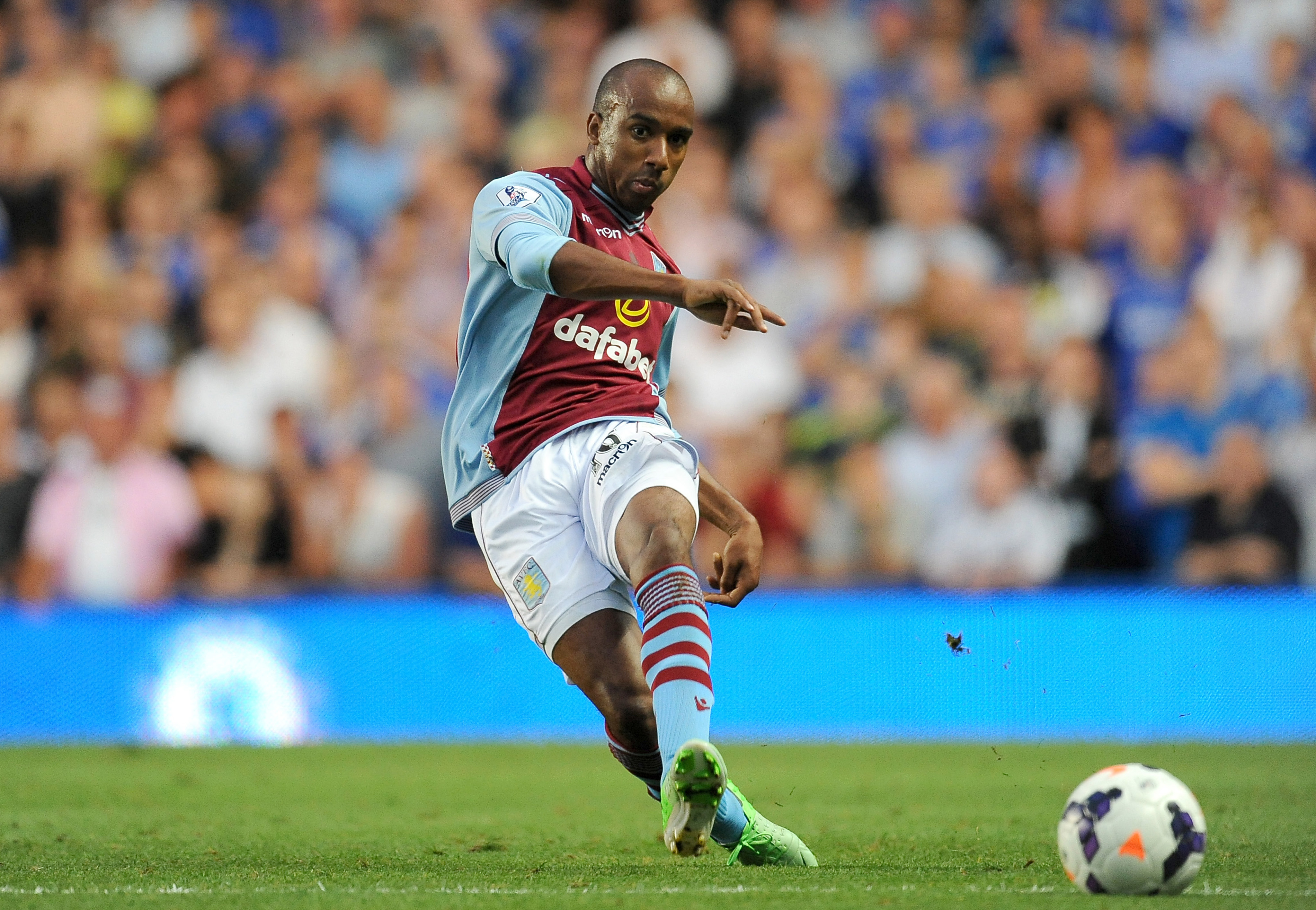
It’s no secret that England struggle to nurture talented young players on a large enough scale, yet rather than blaming competitive junior football or the number of foreign players in the Premier League, the diagnosis should go deeper. There’s a nationwide preoccupation with finished article prodigies, speed, power and heart above all else.
Lampard’s goal against Germany should have stood – and could have turned the tide – but wouldn’t it be smarter to plan for victory rather than leave it up to the gambles of individuals?
“The thing with Wilshere is that he can play anywhere,” claimed Mark Lawrenson last year on Match of the Day. But if anything, Wilshere has benefitted from structure and positional discipline more than most young Englishmen. The careful methods of Arsene Wenger’s philosophy saw that he paid his dues before being rushed into early headlines. Before the departure of Cesc Fabregas, Wilshere toiled as defensive midfielder and became a much more intelligent and mature player.
Lampard’s goal should have stood - but wouldn't it be smarter to plan for victory rather than leave it up to the gambles of individuals?
There was even some satisfaction to be had in watching Jones struggle to re-assert himself upon Manchester United in the winter of 2012. After all, it’s through such adversity that the defender’s education will be enriched, rather than the constant praise that hasn’t helped Joe Hart’s cause of late. Some of the most valuable and challenging lessons can only be learned from failure.
Many coaches at club level can see the benefits in teaching age groups and passing on the lessons of technique and tactical awareness to kids, but the onus must also be placed on fans and pundits to understand the patience required. Progress isn’t simply a case of cracking up the hype.
Rather than plugging holes in Hodgson’s bid to qualify for Brazil 2014, Barkley and Sterling should be granted the opportunity to become the proficient leaders of England’s next generation. Forcing them to become understudies to the current order will only continue the nation’s dysfunctional short-term demands for instant gratification.
Instead the likes of Messrs Sturridge, Welbeck, Townsend and Delph must be given the opportunity, together, to inject some fresh blood and ideas. The time for England’s teenage prodigies will come.
